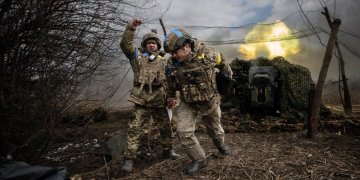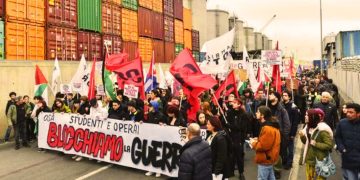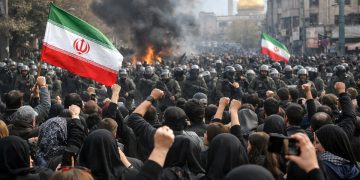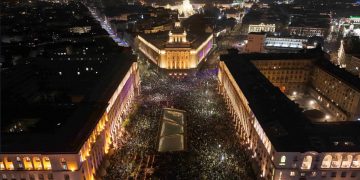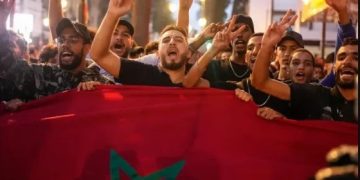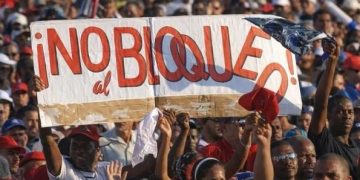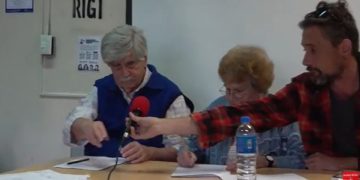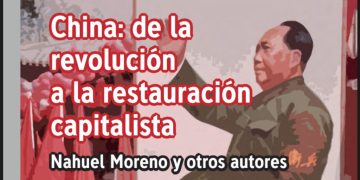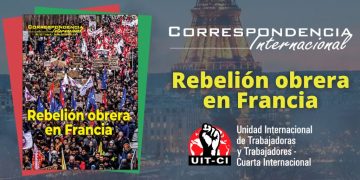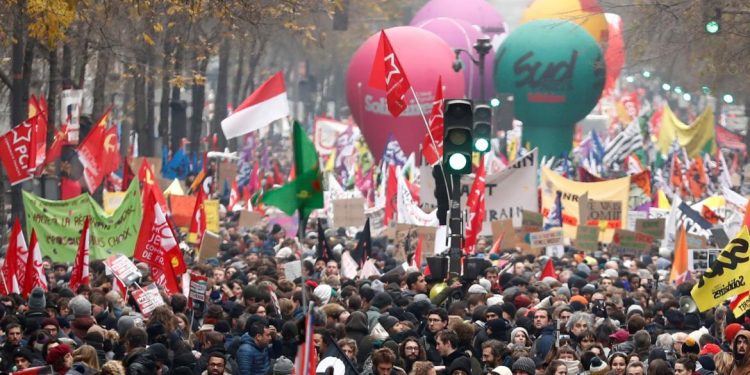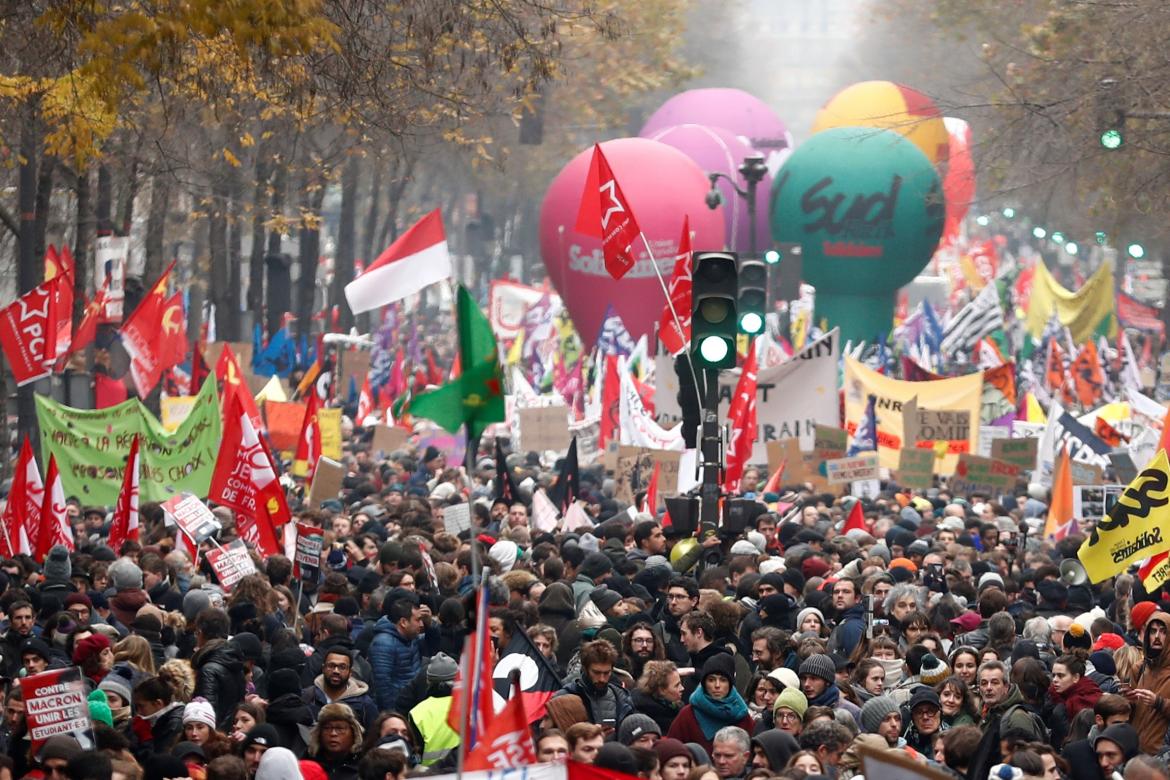 By Simon Rodriguez, a leader of the IWU-FI
By Simon Rodriguez, a leader of the IWU-FI
The French working class once again stood up against the government of the liberal Macron. Over a million people mobilised in some forty cities against the government and its pension reform project. Over 90 percent of trips on high-speed trains and 80 percent on regional trains and 20 percent of commercial flights were suspended.
The strike is indefinite and they will vote its extension daily, which is why it will be the most important strike since the 1995 one that defeated Chirac’s pension reform.
The unions of the Parisian Public Transport Network and the French National Railroad Society had been carrying out strikes since September and since October called for this general strike. They include public officials, health workers, firefighters, teachers, gas and electricity workers, refineries, automobiles and air traffic controllers. With a radicalised workers’ base, of which over 70 percent support the strike, they do not guarantee minimum services by sector. Contrary to this, the trade union centre CFDT boycotts the strike, while the CGT bureaucracy supports the call but with the discourse that each worker must decide for himself whether he/she joins the strike, instead of agitating the need for a general strike not only against the pension reform but to defeat all the counter-reforms and Macron himself, hated by the majority of the working people. It is possible to liquidate the reform of unemployment insurance that means important cuts to the coverage it provides, privatisations, educational reforms that restrict access to university education, and even force Macron’s exit. These are all demands felt by most workers.
As a successor to the social democrat Hollande, who culminated his government worn out by the massive movement against the reform known as the “El Khomri Law,” Macron has headed a weak government from the very beginning. He capitalised a useful vote against the extreme right but without significant support to undertake his austerity plan. Already in September 2017, he faced his first big strike. Within the framework of the yellow vest struggle, started in November 2018, he faced two general strikes in December of last year and February of this year. It sank into great disrepute because of the brutal repression exercised against the protests. Neither with the club nor by partially giving in to social demands has it been able to deactivate the mobilisation. It has not dared to make public the content of its pension reform, only advancing that it is a downward equalisation, through a single system “by points,” eliminating the 42 special regimes that different sectors of the working class have conquered.
Both the left and sectors of the right, including the right-wing nationalist party RN, supported the call for a strike. However, the right-wing leader Le Pen, because of her anti-union record, did not appear in the mobilisations. After the massive November 10 mobilisation against Islamophobia and racism, the tide is not the most favourable for the right. The situation is propitious for building a workers’ and popular alternative, raising an economic and social programme that represents a real, anti-capitalist and socialist bottom out.
The struggle of the workers converges with the movement of the yellow vests, which called for 245 mobilisations on Thursday, at the beginning of the general strike, and their traditional mobilisation every Saturday. Since its irruption on the national scene in November last year, the yellow vest movement defeated the increase in the fuel that the government tried to apply and took away certain concessions from the government, such as an increase in the minimum wage. It has been perhaps the ignition point of a worldwide process of protests and rebellions that in the last year has travelled through a large part of Latin America and the Caribbean, North Africa and the Middle East, Hong Kong, now with Chile as its most widespread and profound expression. In that framework, with a crisis of the capitalist system that over a decade from its beginning has not been closed, the struggle of the French workers against the attempt of the liberal government to unload on their shoulders the weight of the crisis with new cuts to their rights, is part of a struggle whose world character is increasingly marked.
5 December








